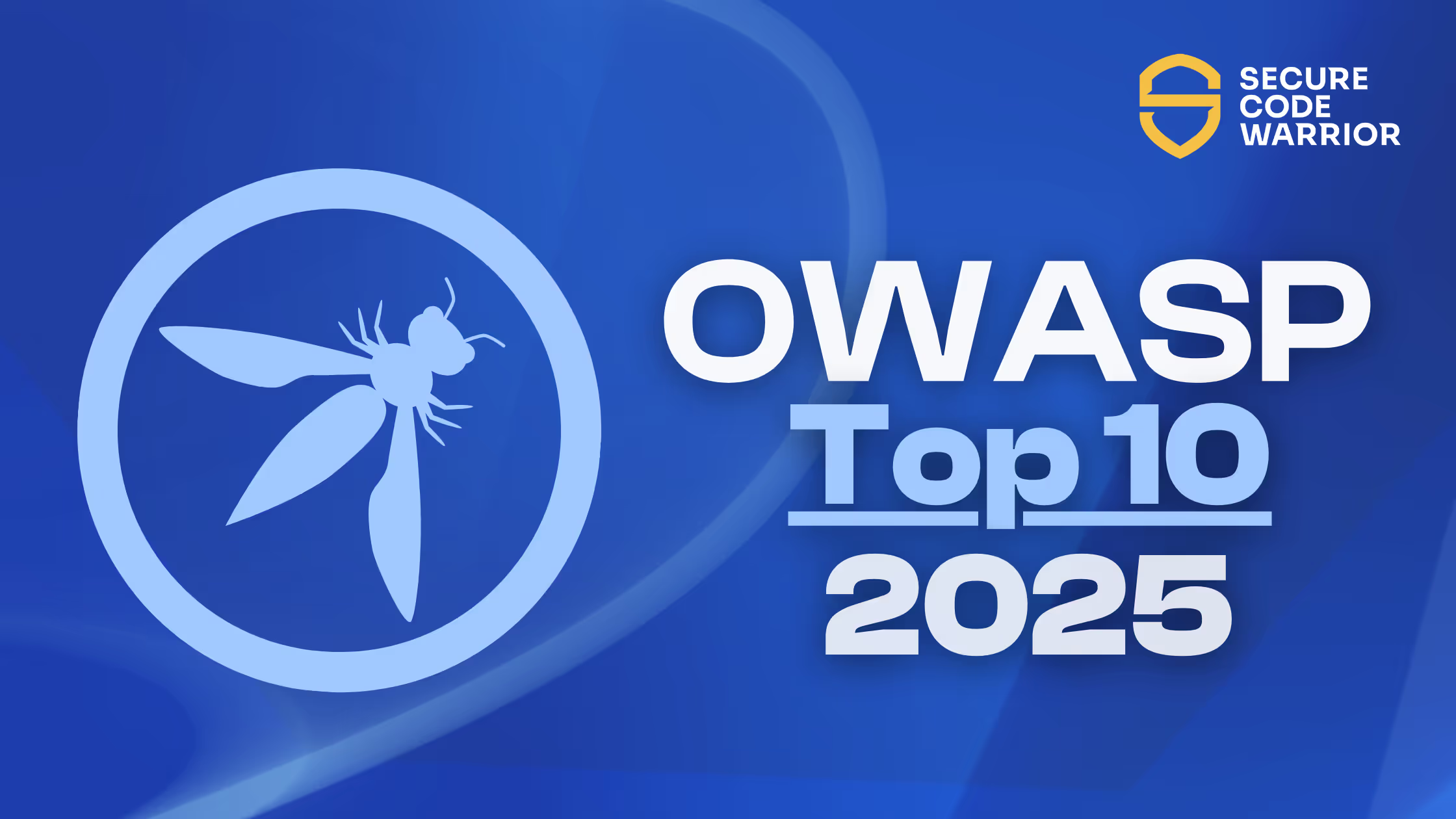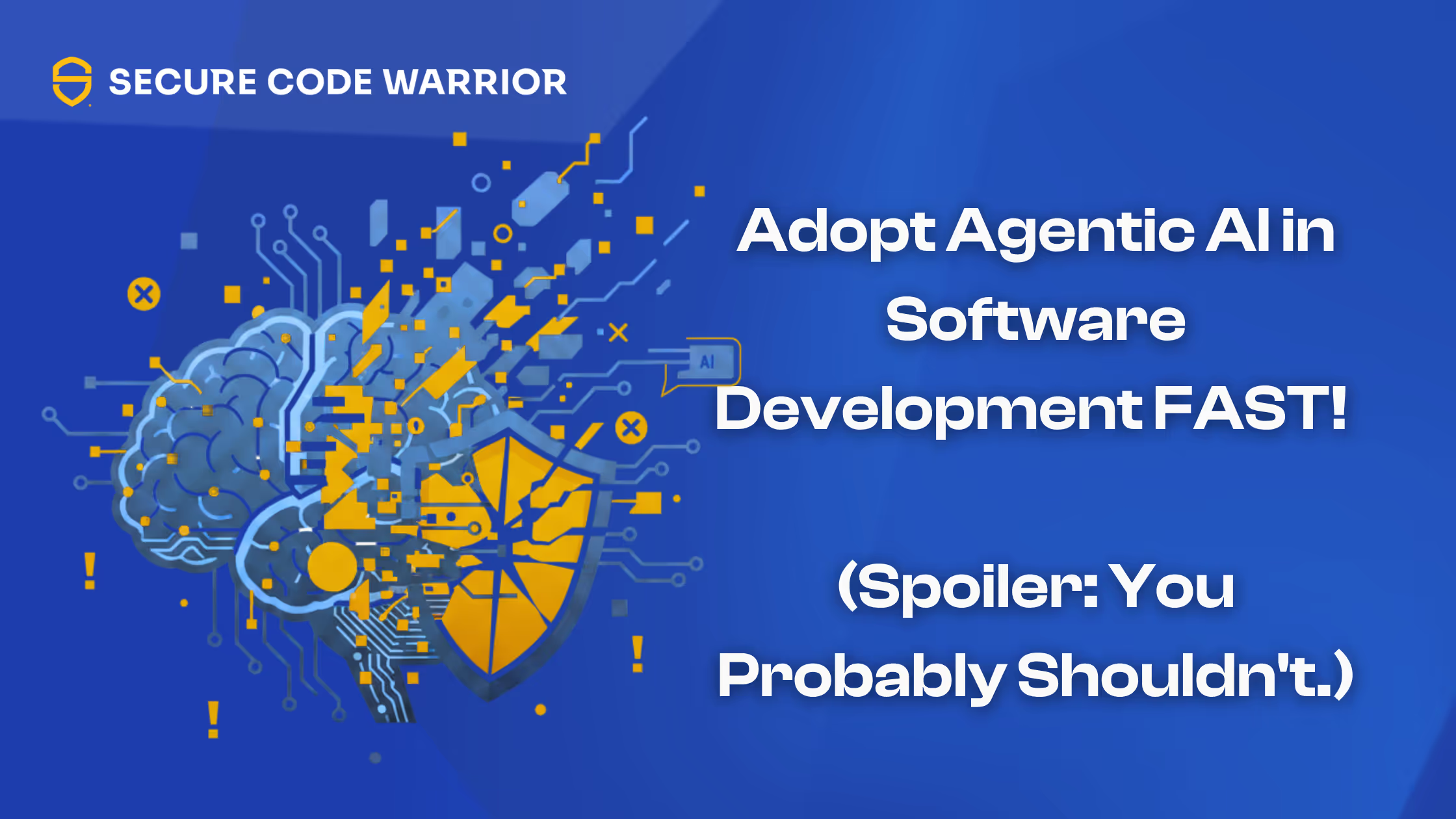
Build secure coding skills at every stage of the SSDLC
Add developer-centric training to industry-standard SARIF files, directly in GitHub code scanning workflows with our new GitHub Action.
On September 30th, GitHub officially announced the general availability of GitHub code scanning. GitHub code scanning is a developer-first, GitHub-native approach to easily finding security vulnerabilities before they reach production.
Code scanning integrates with GitHub Actions " or an existing CI/CD environment " to maximize flexibility for development teams. It scans code as it's created, surfacing actionable security reviews within pull requests, and automating security as a part of a GitHub workflow.
A seamless approach to security for developers.
Built on the open SARIF (Static Analysis Results Interchange Format) standard, code scanning is designed to flex with the ever-growing needs of organization, so they can include things like open-source and commercial static application security testing (SAST) solutions within the same GitHub-native experience.
Third-party code scanning tools can be initiated with a GitHub Action or a GitHub App based on an event in GitHub itself, like a pull request. The results are formatted as SARIF and uploaded to the GitHub Security Alerts tab. Alerts are then aggregated per tool, and GitHub can track and suppress duplicate alerts. This allows developers to use their tool of choice for any of their projects on GitHub, all within the native GitHub experience. Quite simply, it cuts through the disruption of some traditional approaches to security, and it respects the developer workflow.
Yesterday, Secure Code Warrior was featured by GitHub as the only developer-centric training provider in their blog post, Third-Party Code Scanning Tools: Static Analysis & Developer Security Training, alongside Synk, Checkmarx, Fortify On Demand, Synopsis and Veracode.
While many SCA/SAST solutions provide lots of details for each of the vulnerabilities discovered, and references to published advisories and associated CWEs, not every developer is a security expert, nor should that be expected of them. Practical, usable advice and tools are the key to actionable awareness.
Contextual micro-learning.
The more context developers have for vulnerabilities, the more they're able to understand the risks, prioritize fixing the most pressing issues and ultimately prevent them in the first place. That's where Secure Code Warrior comes in. Our mission is to empower developers to write secure code from the very beginning through fun, engaging, and framework-specific training, helping them think and code with a security mindset to achieve rapid improvements in security compliance, consistency, quality and development speed.

GitHub code scanning integration
Secure Code Warrior has built a GitHub Action that brings contextual learning to GitHub code scanning. This means developers can use a third-party action like the Snyk Container Action to find vulnerabilities, and then augment the output with CWE-specific, hyper-relevant learning.
The Secure Code Warrior GitHub Action processes an industry-standard SARIF file and appends contextual learning based upon CWE references in a SARIF rule object. This empowers development and security teams to not only find vulnerabilities, but enrich supported SAST tool reports with actionable knowledge that helps them prevent vulnerabilities from reoccurring.

Ready to try it out for yourself?
Get the action for free directly from the GitHub Marketplace here.
Learn more about the Secure Code Warrior GitHub Action here.


Secure Code Warrior has built a GitHub Action that brings contextual learning to GitHub code scanning. This means developers can use a third-party action like the Snyk Container Action to find vulnerabilities, and then augment the output with CWE-specific, hyper-relevant learning.
Matias Madou, Ph.D. is a security expert, researcher, and CTO and co-founder of Secure Code Warrior. Matias obtained his Ph.D. in Application Security from Ghent University, focusing on static analysis solutions. He later joined Fortify in the US, where he realized that it was insufficient to solely detect code problems without aiding developers in writing secure code. This inspired him to develop products that assist developers, alleviate the burden of security, and exceed customers' expectations. When he is not at his desk as part of Team Awesome, he enjoys being on stage presenting at conferences including RSA Conference, BlackHat and DefCon.

Secure Code Warrior is here for your organization to help you secure code across the entire software development lifecycle and create a culture in which cybersecurity is top of mind. Whether you’re an AppSec Manager, Developer, CISO, or anyone involved in security, we can help your organization reduce risks associated with insecure code.
Book a demoMatias Madou, Ph.D. is a security expert, researcher, and CTO and co-founder of Secure Code Warrior. Matias obtained his Ph.D. in Application Security from Ghent University, focusing on static analysis solutions. He later joined Fortify in the US, where he realized that it was insufficient to solely detect code problems without aiding developers in writing secure code. This inspired him to develop products that assist developers, alleviate the burden of security, and exceed customers' expectations. When he is not at his desk as part of Team Awesome, he enjoys being on stage presenting at conferences including RSA Conference, BlackHat and DefCon.
Matias is a researcher and developer with more than 15 years of hands-on software security experience. He has developed solutions for companies such as Fortify Software and his own company Sensei Security. Over his career, Matias has led multiple application security research projects which have led to commercial products and boasts over 10 patents under his belt. When he is away from his desk, Matias has served as an instructor for advanced application security training courses and regularly speaks at global conferences including RSA Conference, Black Hat, DefCon, BSIMM, OWASP AppSec and BruCon.
Matias holds a Ph.D. in Computer Engineering from Ghent University, where he studied application security through program obfuscation to hide the inner workings of an application.


Add developer-centric training to industry-standard SARIF files, directly in GitHub code scanning workflows with our new GitHub Action.
On September 30th, GitHub officially announced the general availability of GitHub code scanning. GitHub code scanning is a developer-first, GitHub-native approach to easily finding security vulnerabilities before they reach production.
Code scanning integrates with GitHub Actions " or an existing CI/CD environment " to maximize flexibility for development teams. It scans code as it's created, surfacing actionable security reviews within pull requests, and automating security as a part of a GitHub workflow.
A seamless approach to security for developers.
Built on the open SARIF (Static Analysis Results Interchange Format) standard, code scanning is designed to flex with the ever-growing needs of organization, so they can include things like open-source and commercial static application security testing (SAST) solutions within the same GitHub-native experience.
Third-party code scanning tools can be initiated with a GitHub Action or a GitHub App based on an event in GitHub itself, like a pull request. The results are formatted as SARIF and uploaded to the GitHub Security Alerts tab. Alerts are then aggregated per tool, and GitHub can track and suppress duplicate alerts. This allows developers to use their tool of choice for any of their projects on GitHub, all within the native GitHub experience. Quite simply, it cuts through the disruption of some traditional approaches to security, and it respects the developer workflow.
Yesterday, Secure Code Warrior was featured by GitHub as the only developer-centric training provider in their blog post, Third-Party Code Scanning Tools: Static Analysis & Developer Security Training, alongside Synk, Checkmarx, Fortify On Demand, Synopsis and Veracode.
While many SCA/SAST solutions provide lots of details for each of the vulnerabilities discovered, and references to published advisories and associated CWEs, not every developer is a security expert, nor should that be expected of them. Practical, usable advice and tools are the key to actionable awareness.
Contextual micro-learning.
The more context developers have for vulnerabilities, the more they're able to understand the risks, prioritize fixing the most pressing issues and ultimately prevent them in the first place. That's where Secure Code Warrior comes in. Our mission is to empower developers to write secure code from the very beginning through fun, engaging, and framework-specific training, helping them think and code with a security mindset to achieve rapid improvements in security compliance, consistency, quality and development speed.

GitHub code scanning integration
Secure Code Warrior has built a GitHub Action that brings contextual learning to GitHub code scanning. This means developers can use a third-party action like the Snyk Container Action to find vulnerabilities, and then augment the output with CWE-specific, hyper-relevant learning.
The Secure Code Warrior GitHub Action processes an industry-standard SARIF file and appends contextual learning based upon CWE references in a SARIF rule object. This empowers development and security teams to not only find vulnerabilities, but enrich supported SAST tool reports with actionable knowledge that helps them prevent vulnerabilities from reoccurring.

Ready to try it out for yourself?
Get the action for free directly from the GitHub Marketplace here.
Learn more about the Secure Code Warrior GitHub Action here.

Add developer-centric training to industry-standard SARIF files, directly in GitHub code scanning workflows with our new GitHub Action.
On September 30th, GitHub officially announced the general availability of GitHub code scanning. GitHub code scanning is a developer-first, GitHub-native approach to easily finding security vulnerabilities before they reach production.
Code scanning integrates with GitHub Actions " or an existing CI/CD environment " to maximize flexibility for development teams. It scans code as it's created, surfacing actionable security reviews within pull requests, and automating security as a part of a GitHub workflow.
A seamless approach to security for developers.
Built on the open SARIF (Static Analysis Results Interchange Format) standard, code scanning is designed to flex with the ever-growing needs of organization, so they can include things like open-source and commercial static application security testing (SAST) solutions within the same GitHub-native experience.
Third-party code scanning tools can be initiated with a GitHub Action or a GitHub App based on an event in GitHub itself, like a pull request. The results are formatted as SARIF and uploaded to the GitHub Security Alerts tab. Alerts are then aggregated per tool, and GitHub can track and suppress duplicate alerts. This allows developers to use their tool of choice for any of their projects on GitHub, all within the native GitHub experience. Quite simply, it cuts through the disruption of some traditional approaches to security, and it respects the developer workflow.
Yesterday, Secure Code Warrior was featured by GitHub as the only developer-centric training provider in their blog post, Third-Party Code Scanning Tools: Static Analysis & Developer Security Training, alongside Synk, Checkmarx, Fortify On Demand, Synopsis and Veracode.
While many SCA/SAST solutions provide lots of details for each of the vulnerabilities discovered, and references to published advisories and associated CWEs, not every developer is a security expert, nor should that be expected of them. Practical, usable advice and tools are the key to actionable awareness.
Contextual micro-learning.
The more context developers have for vulnerabilities, the more they're able to understand the risks, prioritize fixing the most pressing issues and ultimately prevent them in the first place. That's where Secure Code Warrior comes in. Our mission is to empower developers to write secure code from the very beginning through fun, engaging, and framework-specific training, helping them think and code with a security mindset to achieve rapid improvements in security compliance, consistency, quality and development speed.

GitHub code scanning integration
Secure Code Warrior has built a GitHub Action that brings contextual learning to GitHub code scanning. This means developers can use a third-party action like the Snyk Container Action to find vulnerabilities, and then augment the output with CWE-specific, hyper-relevant learning.
The Secure Code Warrior GitHub Action processes an industry-standard SARIF file and appends contextual learning based upon CWE references in a SARIF rule object. This empowers development and security teams to not only find vulnerabilities, but enrich supported SAST tool reports with actionable knowledge that helps them prevent vulnerabilities from reoccurring.

Ready to try it out for yourself?
Get the action for free directly from the GitHub Marketplace here.
Learn more about the Secure Code Warrior GitHub Action here.

Click on the link below and download the PDF of this resource.
Secure Code Warrior is here for your organization to help you secure code across the entire software development lifecycle and create a culture in which cybersecurity is top of mind. Whether you’re an AppSec Manager, Developer, CISO, or anyone involved in security, we can help your organization reduce risks associated with insecure code.
View reportBook a demoMatias Madou, Ph.D. is a security expert, researcher, and CTO and co-founder of Secure Code Warrior. Matias obtained his Ph.D. in Application Security from Ghent University, focusing on static analysis solutions. He later joined Fortify in the US, where he realized that it was insufficient to solely detect code problems without aiding developers in writing secure code. This inspired him to develop products that assist developers, alleviate the burden of security, and exceed customers' expectations. When he is not at his desk as part of Team Awesome, he enjoys being on stage presenting at conferences including RSA Conference, BlackHat and DefCon.
Matias is a researcher and developer with more than 15 years of hands-on software security experience. He has developed solutions for companies such as Fortify Software and his own company Sensei Security. Over his career, Matias has led multiple application security research projects which have led to commercial products and boasts over 10 patents under his belt. When he is away from his desk, Matias has served as an instructor for advanced application security training courses and regularly speaks at global conferences including RSA Conference, Black Hat, DefCon, BSIMM, OWASP AppSec and BruCon.
Matias holds a Ph.D. in Computer Engineering from Ghent University, where he studied application security through program obfuscation to hide the inner workings of an application.
Add developer-centric training to industry-standard SARIF files, directly in GitHub code scanning workflows with our new GitHub Action.
On September 30th, GitHub officially announced the general availability of GitHub code scanning. GitHub code scanning is a developer-first, GitHub-native approach to easily finding security vulnerabilities before they reach production.
Code scanning integrates with GitHub Actions " or an existing CI/CD environment " to maximize flexibility for development teams. It scans code as it's created, surfacing actionable security reviews within pull requests, and automating security as a part of a GitHub workflow.
A seamless approach to security for developers.
Built on the open SARIF (Static Analysis Results Interchange Format) standard, code scanning is designed to flex with the ever-growing needs of organization, so they can include things like open-source and commercial static application security testing (SAST) solutions within the same GitHub-native experience.
Third-party code scanning tools can be initiated with a GitHub Action or a GitHub App based on an event in GitHub itself, like a pull request. The results are formatted as SARIF and uploaded to the GitHub Security Alerts tab. Alerts are then aggregated per tool, and GitHub can track and suppress duplicate alerts. This allows developers to use their tool of choice for any of their projects on GitHub, all within the native GitHub experience. Quite simply, it cuts through the disruption of some traditional approaches to security, and it respects the developer workflow.
Yesterday, Secure Code Warrior was featured by GitHub as the only developer-centric training provider in their blog post, Third-Party Code Scanning Tools: Static Analysis & Developer Security Training, alongside Synk, Checkmarx, Fortify On Demand, Synopsis and Veracode.
While many SCA/SAST solutions provide lots of details for each of the vulnerabilities discovered, and references to published advisories and associated CWEs, not every developer is a security expert, nor should that be expected of them. Practical, usable advice and tools are the key to actionable awareness.
Contextual micro-learning.
The more context developers have for vulnerabilities, the more they're able to understand the risks, prioritize fixing the most pressing issues and ultimately prevent them in the first place. That's where Secure Code Warrior comes in. Our mission is to empower developers to write secure code from the very beginning through fun, engaging, and framework-specific training, helping them think and code with a security mindset to achieve rapid improvements in security compliance, consistency, quality and development speed.

GitHub code scanning integration
Secure Code Warrior has built a GitHub Action that brings contextual learning to GitHub code scanning. This means developers can use a third-party action like the Snyk Container Action to find vulnerabilities, and then augment the output with CWE-specific, hyper-relevant learning.
The Secure Code Warrior GitHub Action processes an industry-standard SARIF file and appends contextual learning based upon CWE references in a SARIF rule object. This empowers development and security teams to not only find vulnerabilities, but enrich supported SAST tool reports with actionable knowledge that helps them prevent vulnerabilities from reoccurring.

Ready to try it out for yourself?
Get the action for free directly from the GitHub Marketplace here.
Learn more about the Secure Code Warrior GitHub Action here.
Table of contents
Matias Madou, Ph.D. is a security expert, researcher, and CTO and co-founder of Secure Code Warrior. Matias obtained his Ph.D. in Application Security from Ghent University, focusing on static analysis solutions. He later joined Fortify in the US, where he realized that it was insufficient to solely detect code problems without aiding developers in writing secure code. This inspired him to develop products that assist developers, alleviate the burden of security, and exceed customers' expectations. When he is not at his desk as part of Team Awesome, he enjoys being on stage presenting at conferences including RSA Conference, BlackHat and DefCon.

Secure Code Warrior is here for your organization to help you secure code across the entire software development lifecycle and create a culture in which cybersecurity is top of mind. Whether you’re an AppSec Manager, Developer, CISO, or anyone involved in security, we can help your organization reduce risks associated with insecure code.
Book a demoDownloadResources to get you started
Cyber Resilience Act (CRA) Aligned Learning Pathways
SCW supports Cyber Resilience Act (CRA) readiness with CRA-aligned Quests and conceptual learning collections that help development teams build the Secure by Design, SDLC, and secure coding skills aligned with the CRA’s secure development principles.
Threat Modeling with AI: Turning Every Developer into a Threat Modeler
Walk away better equipped to help developers combine threat modeling ideas and techniques with the AI tools they're already using to strengthen security, improve collaboration, and build more resilient software from the start.












%20(1).avif)
.avif)
.avif)



